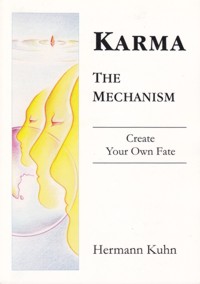Consciously choosing and accomplishing selected activities to free ourselves from limiting material events.
Gaining the skill to leave restrictive emotions behind.

In the stable phase (3) of stage 4 we reached clear understanding of the real functioning of the world. To proceed to stage 5, we need to transfer this mental insight into action.
Yet the stable phase (3) of stage 4 is highly static. We here get easily trapped in a complacency that prevents our ascent to higher levels as intensely as the dense emotional cocoon that trapped us on stage one. It might appear to us as if we experience some growth of understanding, but if we do not raise the energy to break out of this static contentment, our stay in stage 4 will last eternally.
Activity is the main key that tilts our life towards the higher stages.
Stage 5 is mainly characterized by the following theme: Though we fully recognize the potential the Five Freedoms offer us, we consciously reject to transfer our insights into action. We know exactly what activities and emotions we need to change, but we don't act accordingly. The more we realize that only we shape our development and the better we transfer this insight into action, the faster we will recognize more fascinating dimensions of our life. The more we understand that only we ourselves are responsible for our progress, that only we ourselves structure our development, and the more we succeed to really transfer this insight into concrete action, the faster new and more fascinating dimensions will open up in our life.
Stage 6 is our long desired breakthrough into tangible superior understanding. At the first unfolding of this stage, we feel an intense vividness of the present never before experienced.
With liberating clarity we recognize how severely the thought- and emotional patterns of our past and the expectations (and dreads) we project onto the future limit our perception of the present. The immediacy with which we recognize these deep-rooted patterns enables us to fundamentally break free from their overshadowing influence.
Yet the first phase of stage 6 is not stable. We drift in and out of this state. The key to stabilizing the sixth stage of development is our decision to extricate us from our emotional attachment to limiting themes of life. If we experience once how the sixth stage feels like - even if only for a short time - we become able to reach it deliberately.
After some time of deliberately choosing stage 6, we gained enough stability to handle its intensity for longer periods. To enter phase 2, we need to rise above much of our emotional attachment to our material environment. Once we begin to perceive the world beyond the five outward senses, we proceed to phase 2.
In phase 2 we oscillate rapidly for some time between stage six and seven until we become comfortable enough with the far higher energies and perceptions of stage seven to proceed further.
 Hermann Kuhn
Hermann Kuhn
